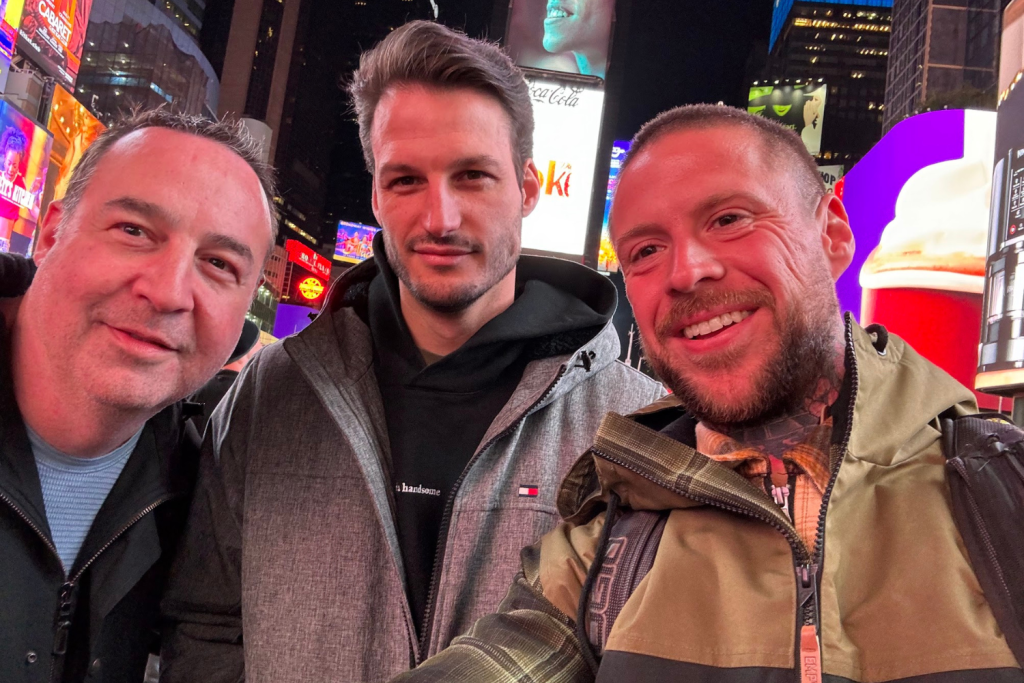Peter Worth, a 31-year-old New Jersey native, embarked on a decade-long global journey, exploring over 30 countries before settling in Brazil. His experiences abroad, particularly his relationship with his Brazilian girlfriend, provided a fresh perspective on the cultural norms he once took for granted in the United States. Upon returning to the U.S., Worth was struck by a series of cultural disparities, which he termed “American oddities,” and shared them on social media, garnering millions of views. His observations sparked widespread discussion about the unique aspects of American culture, both positive and negative.
Among Worth’s most prominent observations was the pervasiveness of pharmaceutical advertising on television. The constant barrage of commercials promoting prescription drugs, often depicting idyllic scenes juxtaposed with lists of potentially severe side effects, struck him – and his girlfriend – as deeply unusual. He contrasted this with the absence of such direct-to-consumer pharmaceutical advertising in most other countries. Another significant difference was the high cost of food, a stark contrast to the affordability he experienced in Brazil. From a $50 breakfast bill to the generally elevated prices of even fast food, Worth noted the financial strain of dining out in the U.S. He also lamented the decline of small, family-owned businesses, replaced by ubiquitous fast-food chains and restaurant franchises.
Worth’s cultural critique extended beyond the culinary landscape. He found the marketing language used for food products in the U.S. to be both amusing and concerning. Terms like “all-natural,” “superfood,” and “protein-enhanced” were plastered across packaging, often masking less-than-healthy ingredients and potentially harmful side effects. He also observed a pervasive culture of legal waivers, required for activities ranging from yoga classes to painting sessions, seemingly reflecting an excessively litigious society. The ingrained car dependency in American cities, designed for automobiles rather than pedestrians, further highlighted a cultural difference compared to the walkable environments he experienced abroad.
Several of Worth’s observations focused on seemingly mundane aspects of American life, revealing the subtle yet significant ways cultures diverge. He questioned the American obsession with cheese, manifesting in products like cheese sticks, cheese spray cans, and “cheese balls” with questionable cheese content. He also commented on the peculiar design of bathroom stalls, with gaps that seemed intentionally designed to facilitate awkward eye contact. The practice of adding sales tax at the register, rather than including it in the displayed price, struck him as deceptive, unlike the transparent pricing practices in other countries. He also noted the proliferation of drive-thrus, extending beyond fast food to banks, pharmacies, and even funeral homes, underscoring the American preference for convenience over personal interaction.
Worth’s list of “oddities” also encompassed everyday habits and cultural norms. He found the practice of wearing shoes indoors, particularly on furniture, unsanitary, given the potential for tracking in dirt, bacteria, and pesticides. He contrasted this with the custom in many other cultures of removing shoes upon entering a home. On the other hand, he expressed a fondness for the sheer abundance of options available at American gas stations, which often resemble convenience stores, offering everything from energy drinks and phone chargers to an array of snacks. Finally, he reflected on the 24/7 culture of the U.S., viewing it as more than just a matter of convenience but a reflection of the nation’s character.
While highlighting the aspects of American culture that surprised or even dismayed him, Worth acknowledged the positive aspects of life in the U.S. He admitted to missing the readily available protein drinks and energy boosters found in American gas stations. He also recognized that his time in Brazil, with its simpler, beach-centric lifestyle, had allowed him to shed some of the consumerist habits he’d developed in the U.S. He appreciated the slower pace of life and the reduced pressure to “keep up with the Joneses.” This shift in perspective allowed him to focus on the essentials, cooking at home, walking everywhere, and minimizing distractions.
Despite enjoying his life abroad, Worth maintained a strong connection to his homeland. He planned to return to the U.S. within a few years, acknowledging the “incredible opportunities” the country offers. He expressed a belief that the current focus on negativity can overshadow the positive aspects of American life. While enjoying the opportunity to poke fun at the “bizarre things,” like bathroom stall gaps, he ultimately missed the country, its landscapes, and the familiar comforts of home. His experiences abroad provided him with a fresh perspective, allowing him to appreciate both the quirks and the strengths of his native land.


